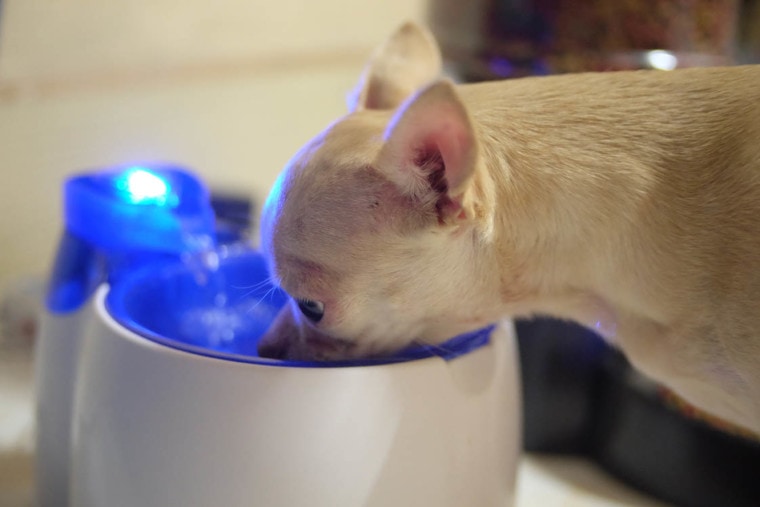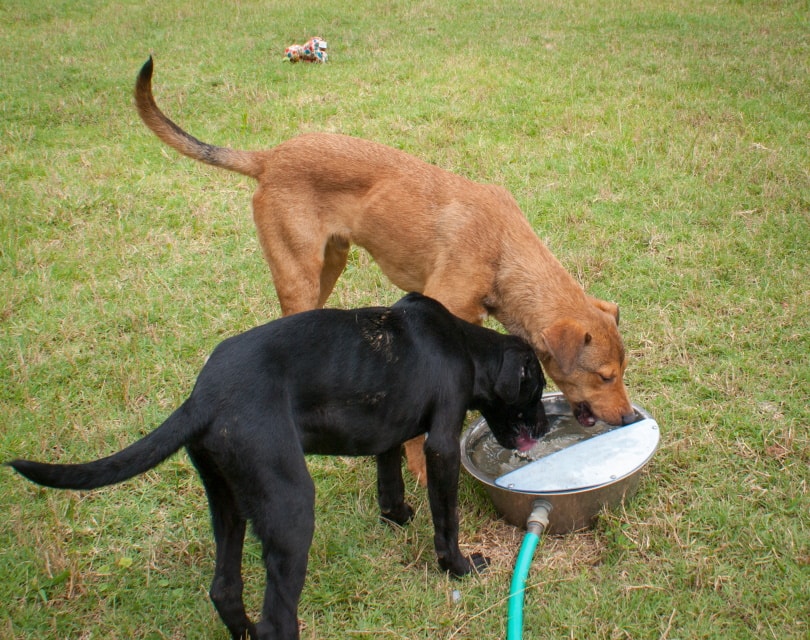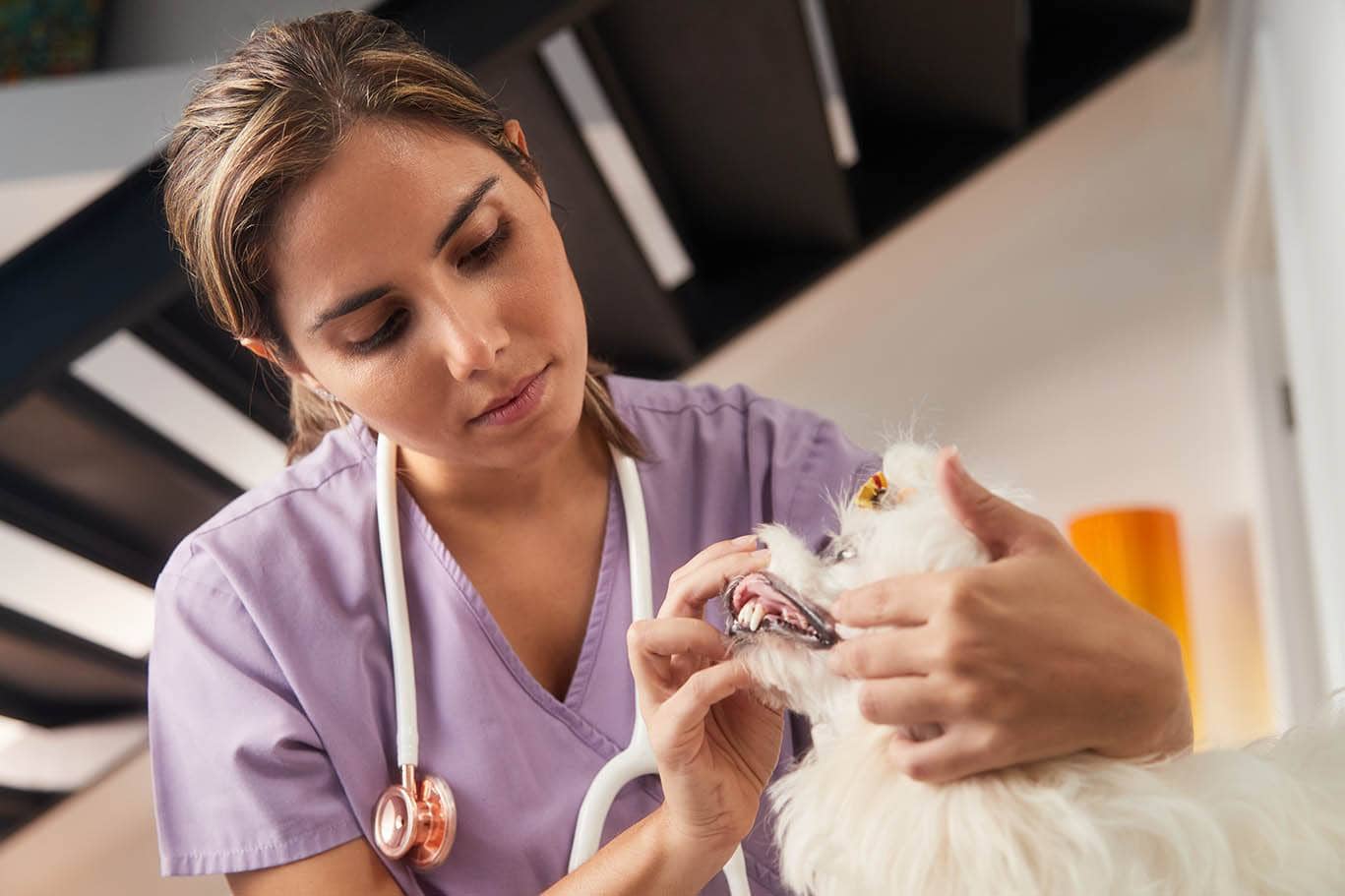
Have you noticed lately that you are refilling your dog’s water bowl more frequently? Or perhaps you’ve caught your dog drinking from the toilet, the pool, a hose, or a puddle. This could be a clear sign that something is going on.
Under normal conditions, dogs should drink between 25-50 milliliters of water per kilogram of body weight over a period of 24 hours. It is normal that during hot days after exercise, dogs might drink a little more. It is also normal (and desirable) for a dog that has suffered from diarrhea or vomiting to drink more water in an attempt to compensate for the amount of fluid lost. Let’s dig into why dogs might be drinking more water and when you should take action on your dog’s increasing thirst.

Canine Biology 101
The water balance in the dog’s body is regulated by the amount of water intake between food and drinks and by the amount of water lost through urine excretion and panting.
Increased water loss or decreased water intake triggers a part of the brain called the hypothalamus to secrete the antidiuretic hormone to avoid dehydration. This hormone signals the kidneys to preserve water by concentrating urine. Thirst is also regulated by the hypothalamus and is activated by the antidiuretic hormone. This is not a straightforward process; it involves the blood vessels, blood pressure, several liver pathways, the urinary tract, etc. We’ll spare you from too many nitty-gritty scientific details.
But if your dog is drinking too much water, this is an indication that something may be brewing under the hood. The medical term for this condition is polydipsia. A dog drinking more than 100 milliliters per kilogram of body weight in a day is considered to have polydipsia.
Some examples of issues causing polydipsia include the kidneys not responding to the antidiuretic hormone, the kidneys not being able to concentrate urine, and problems with the production of the antidiuretic hormone, among others. Polydipsia is a sign that some of the many mechanisms that regulate the water balance in the body are not functioning properly.

Several Medical Issues That Can Cause Polydipsia
Polydipsia & Polyuria
In most cases an increase in water intake will also present with an increase in urination, the medical term of an increase in urination is polyuria. Polydipsia and polyuria are characteristic signs of most of the illnesses listed above.
Should I Act?
Some younger and active dogs that lose a lot of water through panting might drink more water than sedentary dogs, and it is normal for all dogs to drink more water during hot days. You are the one person that knows your dog’s normal water intake and if you recognize it has increased, we suggest you take your dog to the vet. Polydipsia is a sign of several serious health conditions and the vet will require a complete physical examination, blood work, a urinalysis, and in some cases also some abdominal X-rays. Depending on the tests required, you might be required to measure the exact amount of water your dog drinks in a day.

What Is the Treatment for This Condition?
The treatment for a large increase in water intake will depend on the underlying illness. If the polydipsia is caused by infections, antibiotic treatments should resolve it, however, kidney and liver diseases will require specialized diets and supplementation, while most endocrine diseases will require daily treatments. Your veterinarian should be able to guide you through the specific requirements of your dog’s case.

Conclusion
Polydipsia is the medical term for ingesting too much water. Polydipsia can be a sign of several diseases; some of them are serious and many present no other symptoms. If you have noticed your dog’s water intake has increased, please bring your pet to the veterinary clinic for a series of diagnostic tests to find the underlying disease. This will allow you to provide your beloved furry friend with the right treatment. As usual, sooner is better than later. While it may not be an immediate medical emergency, early detection and treatments are always better as medical issues tend to escalate over time.
Featured Image Credit: muslody.com, Shutterstock








